Galwan Valley: The fake news about India and China's border clash
- Published
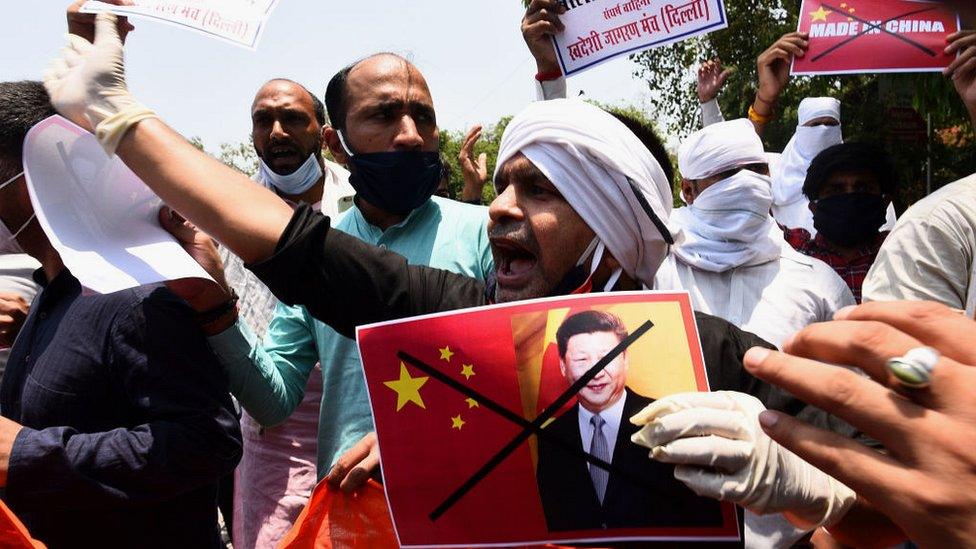
Feelings run high at an anti-China protest in Delhi
Following the deadly clash between Chinese and Indian forces in a disputed Himalayan border area this week, misleading images and videos have been widely shared by social media users.
We've found examples of images and video posted online claiming to be of the latest clash, but which are in fact completely unrelated.
1. A video claiming to show soldiers in combat
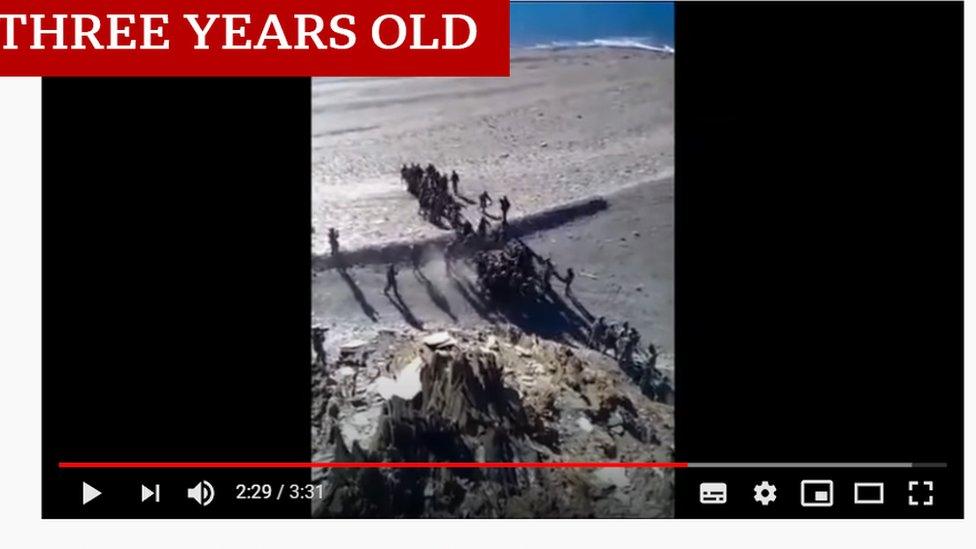
Our first example is a video on YouTube claiming to show the "real fight" between Indian and Chinese soldiers in the Galwan river valley, where the recent clash took place.
It's had more than 21,000 views, and also been widely viewed on Twitter, where some posts talk of the Indian army "kicking out" Chinese forces.
However, the video is shot in daylight, whereas the latest clash in the Ladakh region took place at night.
We've also found this same video posted both in August 2017 and September 2019, on both occasions claiming to show previous skirmishes between Indian and Chinese troops.
2. Indian soldiers mourning casualties is not what it appears
A video depicting an emotional scene with Indian soldiers crying and hugging, as others carry what appears to be a body bag, is doing the rounds on social media.
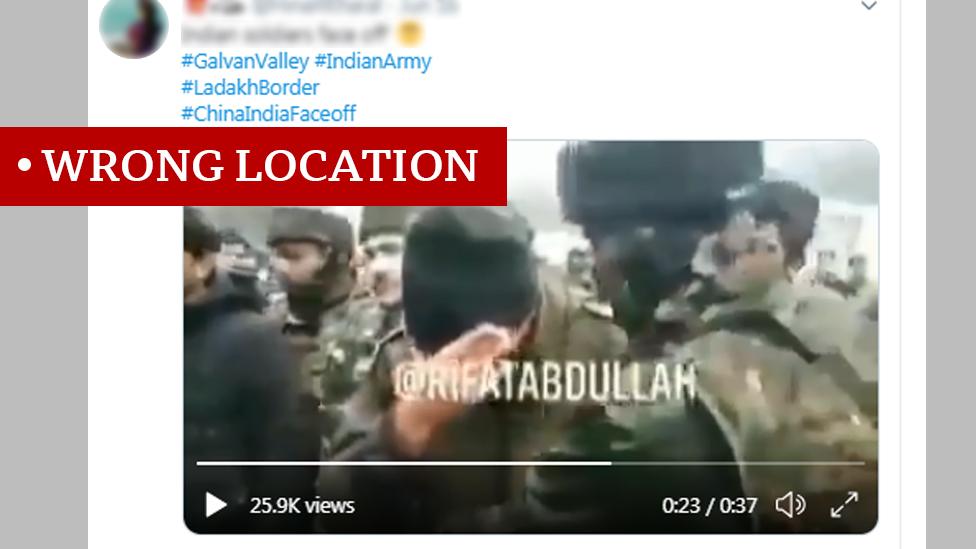
It's been tagged by some users as related to the Galwan valley clash this week.
However, the video is from an incident more than a year ago, external in the Kashmir region, when Indian forces sustained a number of casualties in a confrontation with armed militants.
It's not connected at all to the current incident between Indian and Chinese troops in a disputed border area.
3. An old argument between military officers
A Twitter post showing a video of soldiers from China and India arguing has had thousands of views.
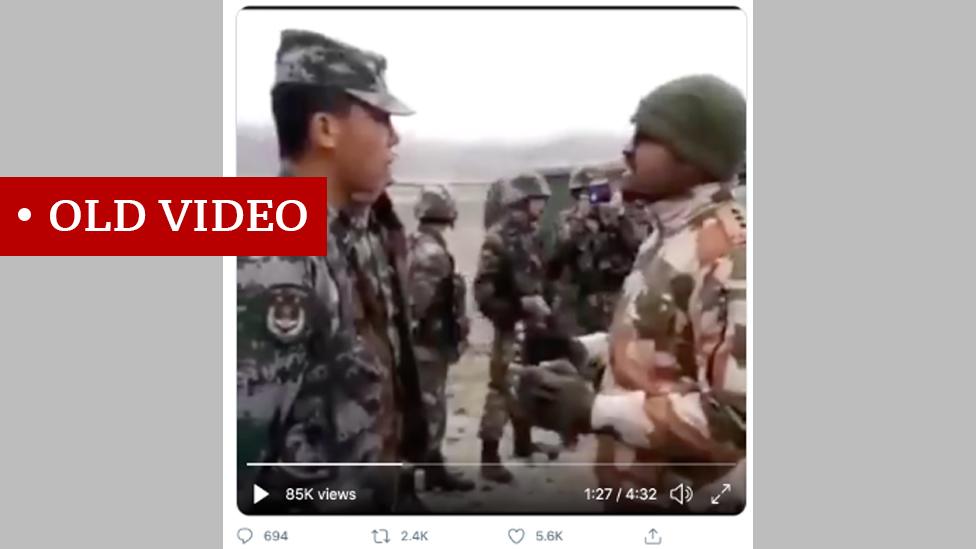
The Chinese troops are scolding an Indian soldier, and demanding that he leaves.
The video has been posted on TikTok's Chinese-language site, and has got more than 33,000 likes and has also been shared by the spokesperson of India's opposition party, the Indian National Congress., external
However, the same video had also appeared on social media platforms in May, so it predates this week's clash. And a search reveals that the video was uploaded to YouTube in January this year.
Apart from that, it's pretty clear from the terrain depicted that the video is not from a mountainside in Ladakh.
Although we can't establish the exact location, a report by one fact-checking site suggests that it was from a border area in Arunachal Pradesh state, at least 1,000 miles away.
4. A funeral for a fallen Indian soldier
Another widely-shared video shows the funeral ceremony for an Indian army man, with his fellow-soldiers shouting out and chanting.
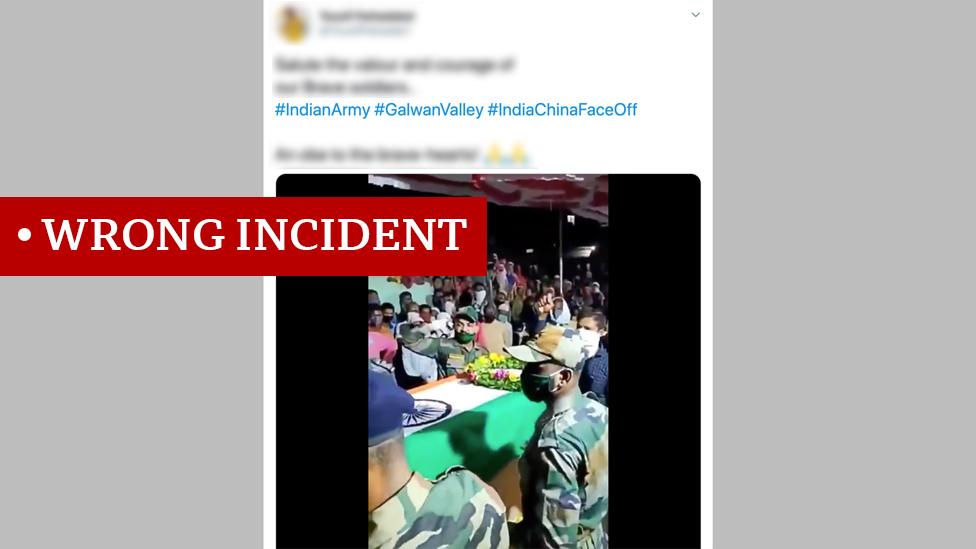
The video - viewed about 40,000 times - refers to the Galwan valley clash and praises Indian soldiers.
The video, however, has nothing to do with the soldiers who died on 16 June.
A reverse image search shows that a similar video was posted on YouTube in May.
Listening to the video, you can just make out the name of the soldier, and a keyword search on Google shows that the soldier in the video died in an accident in the Leh-Ladakh region in May, external.
The soldier's funeral took place in his home town in the state of Maharashtra, where he was given full state honours.
5. Images of dead bodies and coffins are the wrong continent
A Chinese-language article on the recent India-China violence, external contains images purportedly showing the dead bodies of Indian soldiers from the clash.
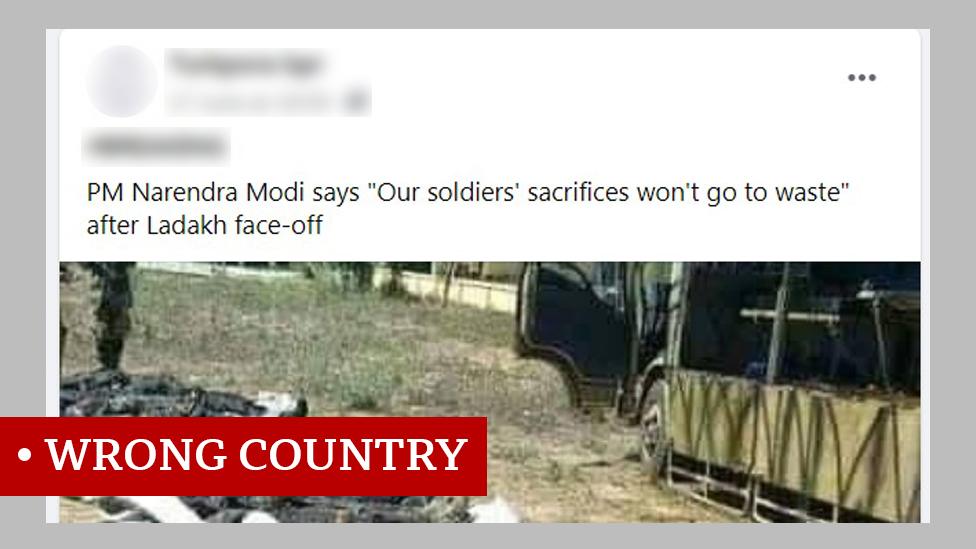
The article has been read more than 100,000 times, and an image from it has also been used on a Pakistani news website called Baaghitv, external.
The same image has also cropped up on social media.
A simple reverse image search showed that it's actually from Nigeria. It depicts the aftermath of an incident in 2015, when Nigerian soldiers were killed by Boko Haram militants.
And another image in the same article showing several army coffins with wreaths is the same as an image posted on social media in February 2019 after a major attack on Indian forces in the Pulwama district of Indian-administered Kashmir.
So again, this is completely unrelated to the current clash.

